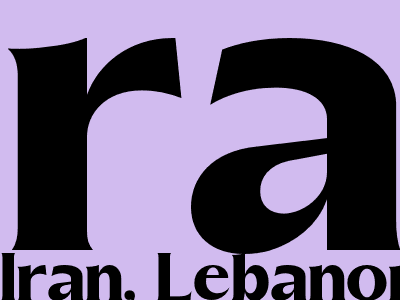
Hezbollah and Israel Reach Ceasefire After Days of Conflict
Tensions Remain High
Despite the ceasefire, tensions remain high following the exchange of fire between Hezbollah and Israel. Both sides have accused each other of violating the terms of the agreement, and there are concerns that the conflict could escalate once more.
Regional Implications
The conflict between Hezbollah and Israel has significant implications for the wider region. Hezbollah is a powerful military and political force in Lebanon, and its actions could have a major impact on the country's stability.
International Response
The international community has called for calm and restraint, and has urged both sides to respect the ceasefire. The United Nations has deployed peacekeepers to the region to help monitor the situation and prevent further violence.
Background
The conflict between Hezbollah and Israel has a long and complex history. Hezbollah is a Shia Muslim militant group that was founded in Lebanon in 1982. The group is supported by Iran and Syria, and has been fighting against Israel since its inception.
Recent Escalation
The recent escalation in violence began on July 12th, when Hezbollah fired rockets into Israel in response to an Israeli airstrike that killed six Hezbollah fighters in Syria.
Hezbollah's Motives
Hezbollah's motives for firing rockets into Israel are unclear. Some analysts believe that Hezbollah was retaliating for the Israeli airstrike, while others believe that the group was trying to provoke a wider conflict.
Israel's Response
Israel responded to Hezbollah's rocket fire by launching airstrikes on targets in Lebanon. The Israeli military said that it was targeting Hezbollah's infrastructure and weapons caches.
Civilian Casualties
The conflict between Hezbollah and Israel has resulted in the deaths of civilians on both sides. According to the United Nations, at least 30 civilians have been killed in Lebanon, and four civilians have been killed in Israel.
Ceasefire Agreement
A ceasefire was reached on August 14th, after two days of intense fighting. The ceasefire was negotiated by the United Nations, and it is being monitored by peacekeepers from the UNIFIL mission.
Aftermath
The ceasefire has brought an end to the fighting between Hezbollah and Israel, but tensions remain high. Both sides have accused each other of violating the terms of the agreement, and there are concerns that the conflict could escalate once more.
Conclusion
The conflict between Hezbollah and Israel is a complex and dangerous situation. The ceasefire has brought an end to the fighting for now, but tensions remain high. The international community must continue to call for calm and restraint, and work to prevent the conflict from escalating further.